In the heights of the Peruvian highlands, where the cold cuts like a knife and poverty is daily bread, a Maltese bishop has found in San José the strength to transform lives.
With unwavering faith and bold projects, Monsignor Giovanni Cefai is writing a story of hope that transcends borders and touches the hearts of those most in need in Peru, where he has been serving for 25 years.
Receive the main news from ACI Prensa by WhatsApp and Telegram
It is increasingly difficult to see Catholic news on social media. Subscribe to our free channels today:
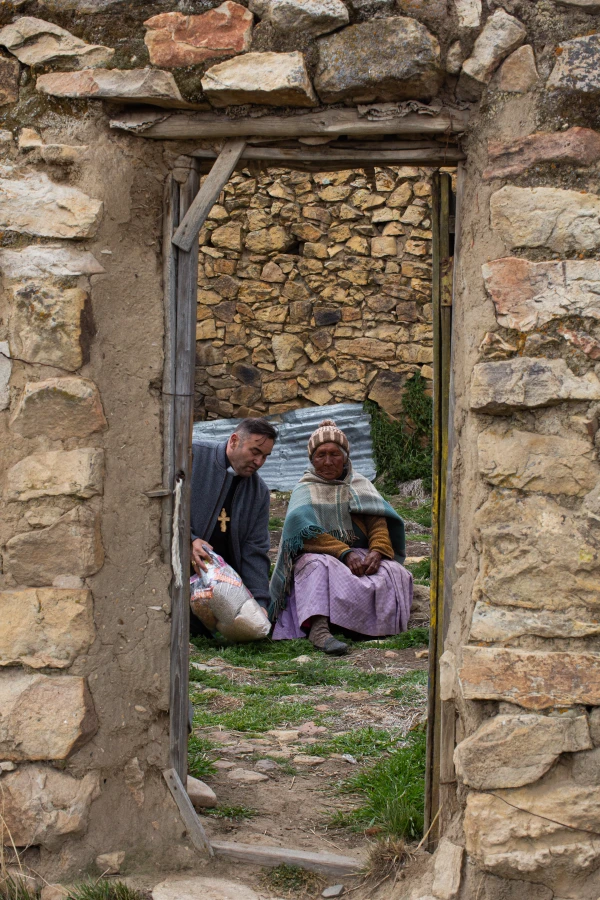
“I always resorted to devotion to Saint Joseph. He is my saint, my favorite saint, my personal saint, from a very young age, thanks to my parents who instilled it in me a lot,” he said in an interview with ACI Prensa.
The 56-year-old Maltese bishop, who belongs to the Missionary Society of Saint Paul (MSSP), and who since 2019 has led the territorial prelature of Santiago Apóstol de Huancanéin the Puno region, has shared how his life and ministry have sought to imitate the humility, obedience and silence that characterize Saint Joseph.
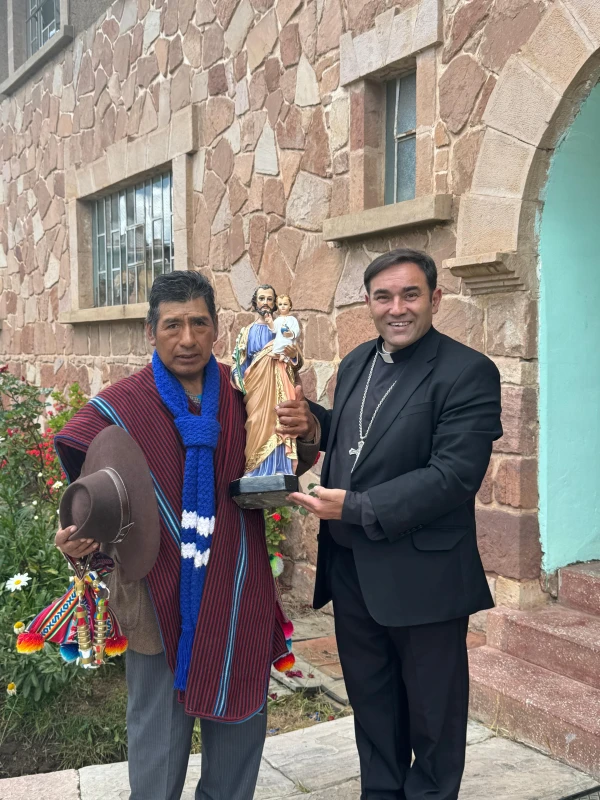
Bishop Cefai’s work has not been easy. In Huancané, with only 16 diocesan priests, it must attend to 22 parishes and serve around 200,000 inhabitants in an extensive territory that includes jungles, Andean mountains with difficult and rugged terrain, as well as communities on the shores of Lake Titicaca.
The prelature in Huancanésuffragan of the Archdiocese of Arequipa, in the south of the country, not only faces multiple geographical difficulties, but also socioeconomic ones. According to a study from the Institute of Economics and Business Development of the Lima Chamber of Commerce (CCL), the Puno region has a high poverty rate, which affects between 39.4% and 43.3% of its population.
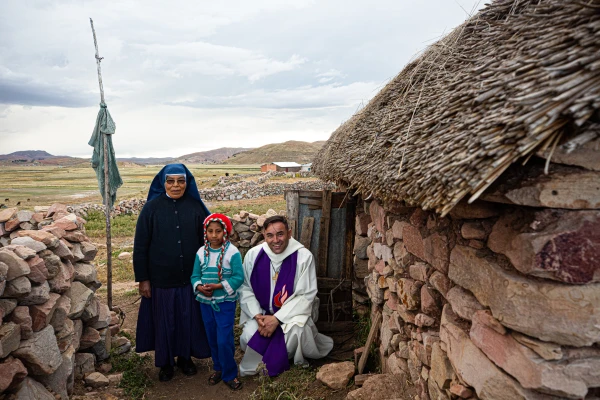
Since his arrival in Peru in 2001, the prelate has worked tirelessly to make a difference, promoting projects to help hundreds of families facing hunger, always trusting in Providence and guided by his devotion to Saint Joseph.
A devotion instilled since childhood
Since childhood, Bishop Cefai was trained in devotion to Saint Joseph thanks to his parents, who taught him to turn to the saint both in moments of joy and in difficulties.
“We have gone through difficult times praying and asking Saint Joseph to help us, accompany us and intercede for us,” he remembers. Furthermore, in the parish he attended in the town of Żebbuġ, Diocese of Gozo, the figure of Saint Joseph occupied a special place, with annual novenas and processions in his honor on March 19.
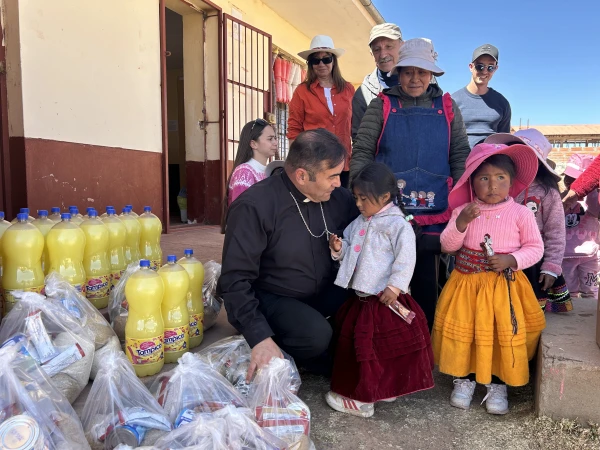
Among the family stories, Bishop Cefai remembers one that his parents told him before going to sleep: the anecdote of Saint Joseph helping the souls in purgatory to enter heaven, which earned him the title of protector of a good death.
“Saint Joseph is very famous for accompanying devout souls so that they have a serene and reconciled transition with God, including the visit of a priest,” he says.
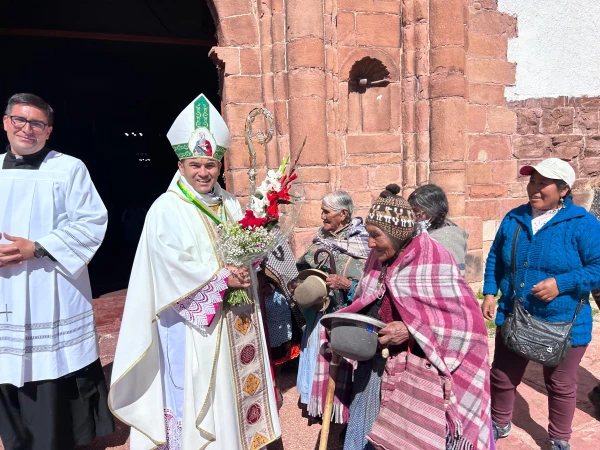
Admiration for the “silence” of Saint Joseph
For Bishop Cefai, the “silence of Saint Joseph” is one of his most admirable virtues. “I fulfilled God’s will, even if sometimes I didn’t understand exactly what it was,” he reflected.
This silence, as he explained, was full of trust in Providence. “In his deep dreams, he reflected and was continually connected with God, who revealed to him his will to protect the Holy Family.”
These virtues—obedience, humility and love in the fulfillment of his mission—inspire Bishop Cefai in his pastoral work.
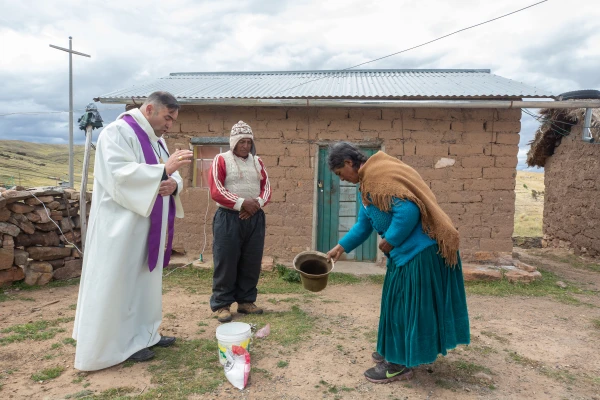
A mission marked by Providence
The desire to be a missionary from a very early age led him to enter the MSSP in Malta in 1984, a community deeply devoted to Saint Joseph. It was there that he understood the role of Providence.
“I remember my superiors always asking for their intercession, especially for our works. Providence never failed us. Although we did not have a fixed income, we never lacked what we needed,” he said.
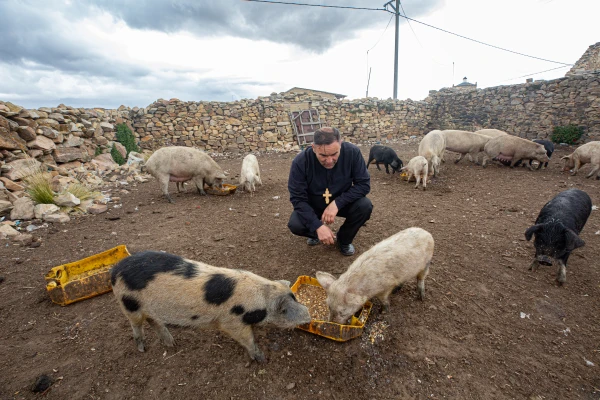
That same spirit accompanied him in his mission in Peru, which began in 2001. He first served as parish priest of the Church of Santa Cruz in Arequipa between 2002 and 2013, where he led projects of great social impact, such as soup kitchens, clinics and catechetical centers. .
“I always resorted to devotion to Saint Joseph. In Arequipa I built a retirement house in his honor, known as the House of San José. I told the saint: ‘If you help me, I will build this house in your honor.’ And the work was completed thanks to his intercession,” he explained to ACI Prensa.
A legacy in Huancané: La Villa San José and other charity projects
Currently, Bishop Cefai continues his work in Huancané with projects that seek to improve the lives of local communities. Among them, the construction of Villa San José stands out, a complex that will include a clinic, a school, a retirement home and recreational spaces for families.
“It is an ambitious project, but I am confident that, because it is in its name, it will grow,” he stated.
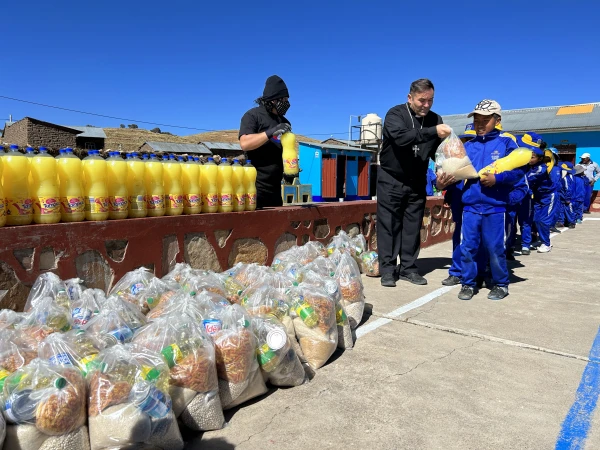
The Maltese bishop has faced multiple challenges in his work in Puno, especially due to the harsh climatic conditions of the region. With temperatures that in winter can reach 10 degrees below zero, it organizes campaigns to collect blankets and clothing, in addition to personally visiting families to provide support.
The prelature also has a mobile ambulance to carry out medical campaigns in rural areas, where the demand is enormous. Thanks to donors, every month this program organizes campaigns in 12 communities, collaborating with local authorities to identify priority cases, such as children with medical, dental or psychological problems.
Each campaign has a limited capacity of 100 to 120 people due to the time each care requires: between 10 and 15 minutes for general medicine, 30 minutes for psychology, and basic dental procedures. In addition to care, they provide medications to ensure continued treatment. Currently, Bishop Cefai is working on a project to establish a dental clinic that will allow him to offer more complete treatments.
He has also promoted the creation of soup kitchens and a school during his pastoral government.
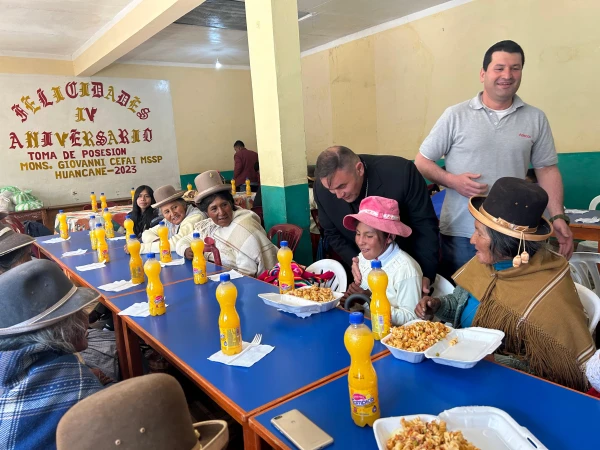
According to information from the Prelature shared with ACI Prensa, the local Church manages three parish soup kitchens distributed in the towns of Rosaspata, Sandia and Huancané, all dedicated to providing care to the elderly and children. In the latter, the main dining room, about 80 people are fed daily.
The San José de Huancané School, inaugurated this year, has 50 students, although the lack of space has limited its capacity. Currently, there are three classrooms for preschool and primary school. However, Bishop Cefai is managing the construction of six additional classrooms, which are expected to be ready by March or April of next year.
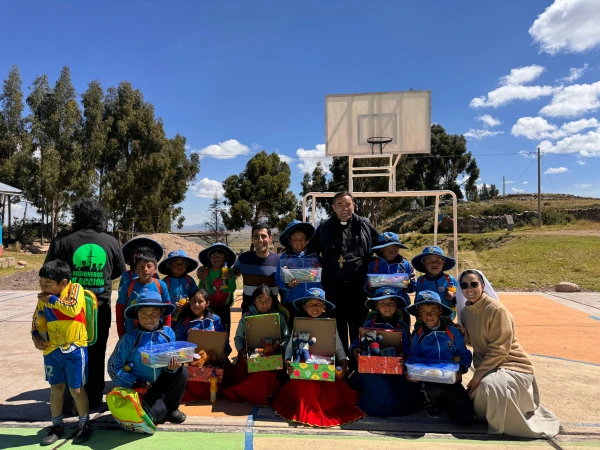
In his daily life, Bishop Cefai also dedicates himself to visiting hospitals and sharing fraternal moments with local families, many of them affected by extreme poverty. It has also promoted the cultivation of coffee, an alternative to prevent residents from resorting to activities such as illegal mining and drug trafficking.
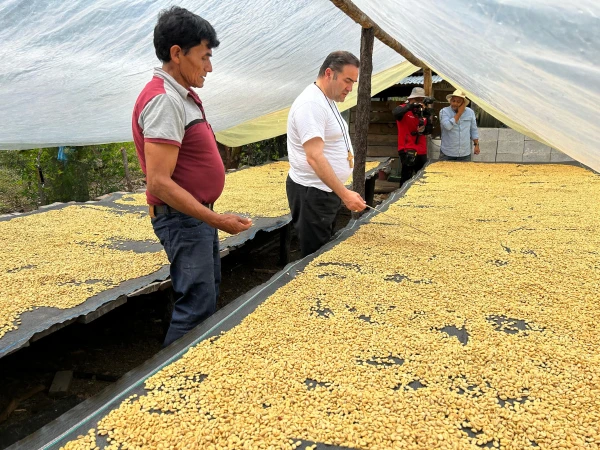
In statements to ACI Prensa, Alex Tapia, advisor and administrator of the Prelature, described Bishop Cefai as “a missionary bishop deeply committed to his people and to the work that God has entrusted to him.”
“I had the grace to accompany him from the beginning of his mission, literally starting from scratch. He is a dreamer man, with a huge vision. “He dreams of doing great things and, sometimes, his enthusiasm keeps him awake at night, because he is always thinking about projects for the good of people,” he said.
According to Tapia, the prelate’s commitment “does not remain in words,” but can be seen in his actions. “He has no problem getting into his truck and traveling through the jungle, visiting parishes and even acting like just another parish priest. He is a leader who experiences direct contact with people, addressing their needs and concerns.”
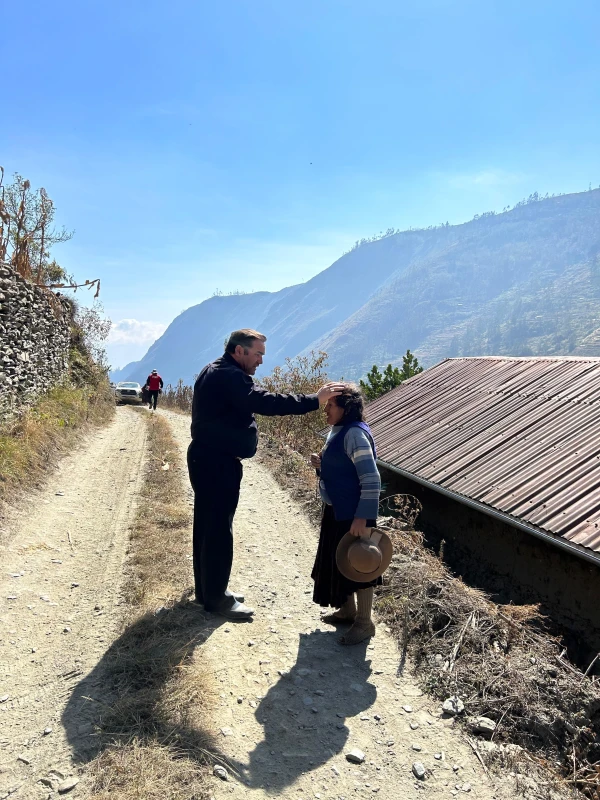
One of the biggest challenges for Bishop Cefai, Tapia noted, occurred during the COVID-19 pandemic, in 2020, a time in which prayer played a fundamental role. In the midst of multiple difficulties, such as project halts, team stress, and deaths, faith became a source of strength and hope. “We prayed a lot, a lot,” he shared.
Despite being infected, including Monsignor Cefai, they did not stop fulfilling their mission of caring for those most in need. “With his mask on, Monsignor went out, he had to go see the people, give support, make arrangements. That is the image that will always remain etched in my mind,” he concluded.

